#Class of 1947
Text

Leona D. "Lee" Brakla, 96, went to be with her Lord on Aug. 20, 2023, at the home of her daughter, Shari Payne, St. Joseph.
Lee was born in Watertown, Wis., to Herman and Ella (Prillwitz) Glaske.
About one year later, the family moved to the St. Joseph and Benton Harbor area where she lived all of her life.
After graduating from Benton Harbor High School and one year at Bob Jones College, Lee worked for A.B. Morss printers for many years. Then she worked at Berrien County Intermediate School District in REMC's media department, where she retired in 1991.
On Nov. 29, 1947, she married Don Brakla. They had a daughter, Shari, and a son, Mark.
Lee accepted the Lord as her Savior at age 13, and loved and served Him all her adult life wherever she could; teaching Sunday school, singing in the choir and playing the piano and organ wherever there was a need. She had a large perennial garden and for more than 40 years, provided large floral arrangements for the church sanctuary. She always thanked Him for the beauty in nature He has given us to enjoy!
Don and Lee enjoyed golfing, and spending vacations traveling on their Harley, pulling a pop-up camper, visiting almost all of the states in the country. In the mid-60s, Don's work transferred him to Ashville, N.C. for three years. For several of those years, Lee was blessed with the opportunity to work at The Biltmore House in the floral design department, where she made floral arrangements of all shapes and sizes to decorate the house. How she enjoyed that time and always thanked God for giving her that opportunity.
Lee was preceded in death by her parents; brothers: Don and Paul Glaske; sister, Helen Wentworth; son, Mark; and granddaughter, Kathy Patterson.
She is survived by daughter, Shari Payne; daughter-in-law, Pat Brakla of Grand Rapids, Mich.; five grandchildren, seven great-grandchildren and eight great-great-grandchildren.
A celebration of life service will be at 11 a.m. on Saturday, Aug. 26, with Pastor Maynard Schoen officiating at Starks & Menchinger Chapel & Cremation Services, 2650 Niles Road, St. Joseph. Friends and family may visit with Leona's family on Saturday from 10 a.m. until the time of service at the funeral home. Private burial will be at a later date.
In lieu of flowers, memorials may made to New Community Church WM Arts Dept, 2340 Dean Lake Ave., N.E. Grand Rapids, MI 49505 or American Macular Degeneration Foundation, P.O. Box 515, Northampton, MA 1061-0515.
#Bob Jones University#BJU Hall of Fame#2023#Obituary#BJU Alumni Association#Class of 1947#Leona D. “Lee” Brakla
0 notes
Text
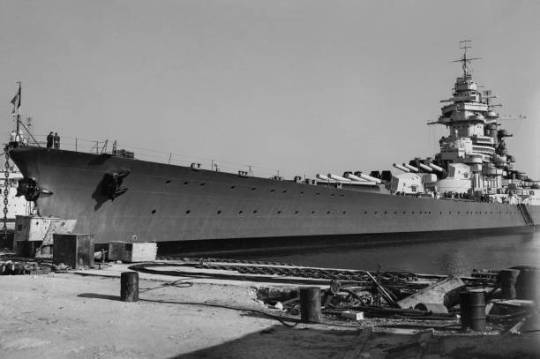
French Battleship Richelieu waiting for the President of the Republic Vincent Auriol for his trip to Dakar, in the harbor of Toulon, France.
Date: April 1947
source
#French Battleship Richelieu#Richelieu#Richelieu Class#French Battleship#Battleship#Warship#Ship#French Navy#Marine Nationale#La Royale#Toulon#France#April#1947#my post
38 notes
·
View notes
Text
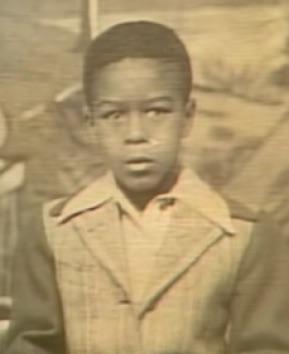
#Richard Pryor -aged 7 - class photo 1947. Pryor was an American actor and stand-up comedian. He reached a broad audience with his trenchant#mrnastymannn#oldschool
23 notes
·
View notes
Text
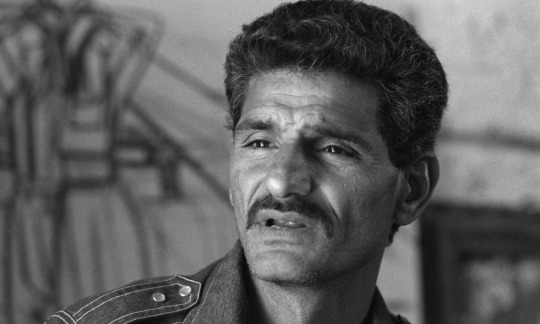
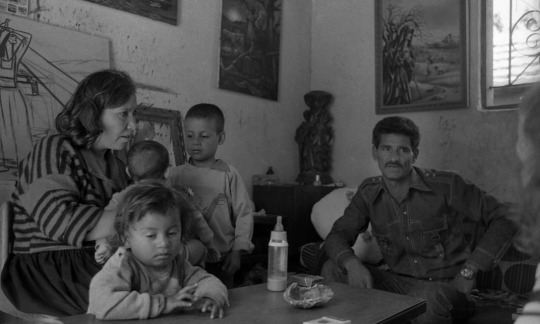
Repost: We grieve the loss of Fathi Ghaben, iconic Palestinian painter, born in Hiribya in the Gaza strip in 1947.
He was mainly known for his folklore art and depiction of resistance through existence and culture - "His figures are captured in motion as they labor, protest, tend to their fields, celebrate, and dance. The raw power of the working-class is there in Ghaben's artwork, as it is in him." (Quote from @alserkalavenue).





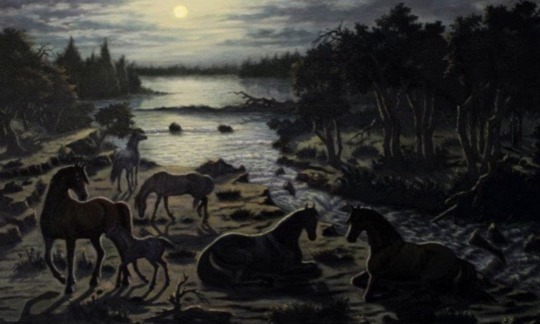
He passed away yesterday (Feb 25, 2024) as a result of the neglect of the occupation. He was waiting for the Israeli authorities to grant him permission to to leave Gaza to receive medical aid after multiple requests.
Photo credits and ID below the cut.
ID: [The first picture is taken in the Jabalia Palestinian Refugee Camp in the north of Gaza city. It is a black-and-white photograph of Fathi Ghaben, a Palestinian painter, in his house. The picture is from The Joss Dray Collection via Pal Museum Digital Archive. The second picture is from the same day in 1987. It is a picture of him with his family in their house. The black and white picture shows him, a woman, and three kids in frame.]
[All remaining images are directly sourced from Fathi's Facebook and/or X. One of them is a painting of farmers tending to their fields, with an abundance of oranges around them. The other is a painting of a woman sitting on the floor and sewing a traditional Palestinian pattern, known as tatreez, onto a dress. The next picture shows people in a village, a woman sits on the ground next to a clay oven, known as taboon, making bread. A child is sitting next to a collection of baked bread near her and holds a round piece of bread. The painting after depicts a large group of farmers picking fruits from trees. There’s a large amount of green fruit collected on the ground. The picture after is an image of the painter Fathi Ghaben painting on canvas. He is painting what looks like a lake in the moonlight, with trees, bushes, and birds around. The last picture is a painting of horses across a field near a stream of water.] END ID.
2K notes
·
View notes
Text
The WHS Class of 1947 in Reunion
The WHS Class of 1947 in Reunion
By: Vareva Harris
The WHS Class of 1947 met in reunion to celebrate 75 years after graduating from Woodruff High School. The bond of their relationships has withstood the test of time. They communicate with each other regularly, and they meet for lunch every year in Woodruff at a restaurant. At the 75th reunion, eight of the 11 living members of the graduating class of 1947 attended along with…

View On WordPress
#Ann Jones#back row H. G. (Gus) O’Sheilds#Bennie Nell Williams#Cynthia Anderson#Gail Hipp#Magdalene Trammel#Mary Lee Kennedy#Sara Taylor#WHS Class of 1947
0 notes
Text
To get into the first looks that were made for Barbie, we need to understand the beauty and fashion of 1959.
1950s fashion existed under that shadow of World War II. Women of the war era were hardy, hard-working, and practical. Fashion was also extremely practical, using as little rationed material as possible. The silhouette was boxy, masculine and almost military, with big broad shoulders and knee-length skirts. Rationing and austerity continued in the years immediately following the war, but then in 1947, something miraculous happened:
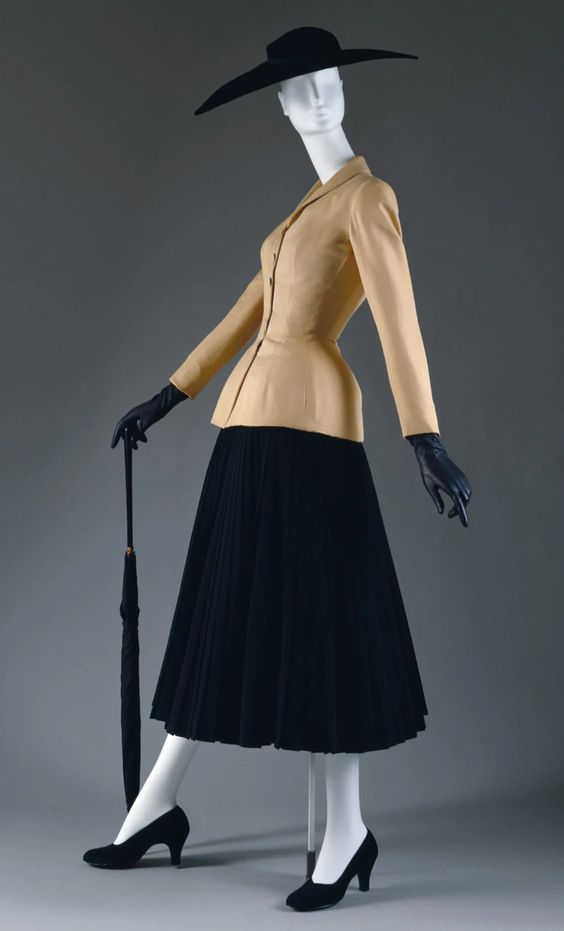
(The Metropolitan Museum of Art)
Christian Dior created “The New Look.” Now okay, fashion in general had been leaning into this new silhouette and Dior was far from the only designer to be working with it, but his was the most copied and most iconic.
“The New Look” was a call back to the sumptuous femininity of the mid-Victorian era, bringing back tiny waists held in place by impossibly tight corsets and big, full skirts with crinolines and hoops.
The silhouette was a return to classic femininity, but the materials garments themselves were pure modernity: a practical ensemble for a wealthy woman-on-the-go who was lunching with her friends in Paris.
Looking back at Barbie’s 1959 looks, Christian Dior’s fingerprints are all over them, but I see plenty of other designers in the mix, as well. It’s actually very easy to find near-matches of almost all of Barbie’s 1959 looks with a cover of Vogue from the 1950s. Barbie from the get-go was an idealized woman who existed in a world that was separate from the middle-class American suburbs that the little girls who played with her lived in.
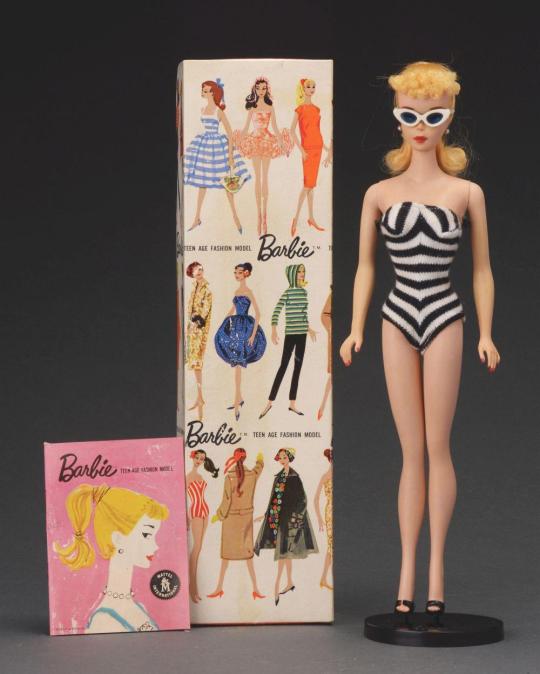
Looking at classic first-run Barbie, there’s honestly not a whole lot to say about the bathing suit look. I mean, yeah, that’s what fashionable women wore to the beach in the 1950s. Her buxom curvy body fit the idealized standards epitomized by Marilyn Monroe.
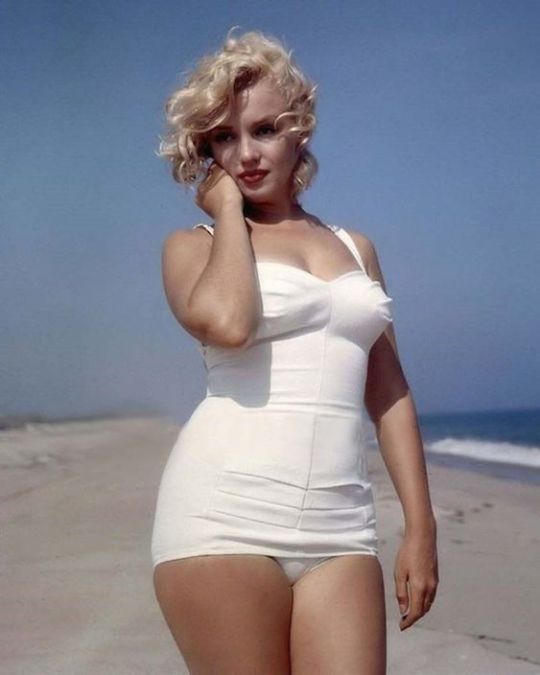
Her face has the heavy makeup that was worn by French fashion models of the time.

Arched, heavily-styled brows, eyeshadow, slightly winged eyeliner, mascara, and of course perfect red lips with matching mani and pedi. One of my pet peeves about vintage style is when people wear winged eyeliner as “50s housewife glam.” NO. Your average middle class American Mrs. Homemaker was not wearing that kind of makeup. Winged eyeliner in the 50s only had a small wing that accentuated the eyelashes, and was generally only worn by the high-fashion crowd. Maybe on a special extra glamorous date with Mr. Husband, but not to a church potluck. Anyway, end of rant, but you see that’s what Barbie is trying to emulate.
Her hair, however is different: the poodle hairstyle was one favored by teenage girls. Seen here on the squeaky-clean America’s sweetheart, Debbie Reynolds:
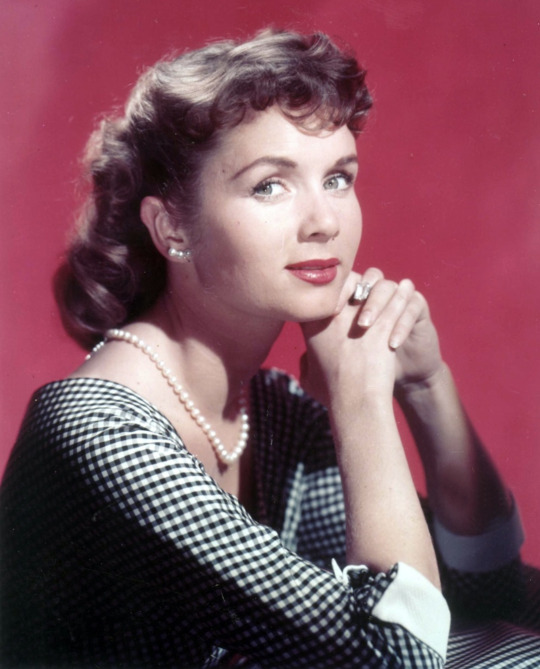
The playful, youthful hair pulls her back and keeps her from being *too* grown-up. It’s the first step in the balancing act that Barbie has always pulled off with aplomb: to represent adulthood without being too far out of reach of children’s imaginations.
2K notes
·
View notes
Photo

Daydreaming in class, Florida, 1947 - by Allan Grant (1919 - 2008), American
440 notes
·
View notes
Note
Hiya could you do Harry Crosby + “ if you asked me to marry you tomorrow, i'd say yes. “ “ what about today?” from one of your drabble prompt lists please and thanks 💛
Thank you so much for requesting, Nonnie! I’ve adored these Masters of the Air requests, especially getting to write for Harry my love!! Our favorite navigator 🥰
Quick warning that there is a nonzero chance of historical inaccuracies here, and the timeline may be a little off, but I did actual research for this one y’all! New additions to the ever-growing Useless Knowledge section of my brain: knowing where Lt. Harry Crosby studied for college (he was working on his graduate degree at the University of Iowa when the Pearl Harbor attack occurred; he went back to finish his degree there in 1947 and earned his PhD from Stanford University in 1953!), when and why he joined the Army Air Forces (paused his studies at U of I to enlist after Pearl Harbor), and where he was sent for his training (Mathers Field, California) before being stationed in Idaho, and eventually at East Anglia. Look at me go lol 🤪 Anyway, I hope y’all enjoy!
Disclaimer: This is a work of fiction based off the portrayal by the actors in the Apple TV+ series. I hold nothing but respect for the real life individuals referenced within.
a/n: well, that’ll teach me not to try to format my fics on mobile 😂 I guess the Harry fic’s coming out today! Hope you like it Nonnie <3
Masterlist

Just Say Yes
You waited anxiously under the maple tree at the edge of the campus courtyard, fiddling with the worn, creased paper in your hands — Harry’s last letter, telling you that this next visit home would likely be his last before he was transferred to Idaho, and then to who knows where.
I’ll meet you under our tree, pretty girl, the letter had read, Saturday, our usual time?
The tree— the very maple tree you stood in the shade of now— was where you had met often when you were both students at the University of Iowa, studying English. The tradition had started when you were paired up for a project, and Harry asked if you would mind working outside.
“I think better in the fresh air,” he had said, almost apologetically, and you had agreed almost instantly, captivated by the quiet but clearly very smart boy who sat next to you in class.
Even after the project was over and graded, you continued to meet under that tree nearly every day at 2 o’clock after class to compare class notes or exchange feedback on essays.
And after nearly four months of meeting and working together, it was under that tree where Harry Crosby finally asked you out on a date.
Leaning back against the tree, you were jolted out of your trip down memory lane by a familiar voice calling your name.
Grinning, you turned to see Harry strolling towards you, dapper in his dress uniform, one arm raised in greeting, the other cradling a bouquet of tulips— your favorite.
You pushed off from the tree, unable to wait a single second longer, and sprinted to meet him, uncaring of the students staring at the crazy lady running across their campus.
He opened his arms as the distance between you lessened until you crashed into him, burying your head in his chest. He stumbled back a bit, absorbing your momentum, but he was quick to embrace you, quicker still to turn your momentum into a dizzying, joyous twirl, lifting your feet off the ground.
You let out a gleeful laugh as the world spun around you, and pulled him in for a long-overdue kiss once your feet were firmly back on the ground.
After the two of you reluctantly pulled apart, you cupped his face in your hands, drinking him in: lips stained red from your lipstick, hat knocked askew, uniform now more than a little wrinkled, and best of all, those warm brown eyes you had missed so much overflowing with love.
He looked as dapper as ever.
“Hey, pretty girl,” he murmured with a smile, a greeting for your ears only.
It had been so long since you’d heard those words from his lips, and all you could do was blink back the tears that sprang to your eyes as you replied with a simple, tender “Hi.”
Understanding filled his eyes, and he pulled you into a hug, pressing a kiss to your forehead and allowing you a moment to compose yourself before the two of you headed back towards your tree.
“Oh!” He said, holding the bouquet out to you as if he just now remembered he had it, “For you, m’lady.”
You took the bouquet, fingering the delicate pink and yellow petals. “They’re beautiful, Harry,” you smiled up at him, “Thank you.”
“Anything for my girl,” he said, gesturing for you to sit and make yourself comfortable first before he settled next to you in the shade.
“So,” he said, wrapping an arm around you, “Tell me everything. What have I missed? How’d that paper go that you were telling me about?”
You couldn’t help but light up at the mention of your latest paper— your pride and joy, your best work yet if you didn’t say so yourself— and at Harry’s encouraging smile, you rambled on about themes and motifs and parallels, Harry occasionally chiming in with a suggestion that made the connections you had made even clearer.
Despite the plethora of letters you had sent each other, each doing your best to keep the other updated, you and Harry never seemed to run out of things to talk about: the conversation flowed from your latest paper to how Harry had been giving the guys some book recommendations based on your suggestions, to the small bookshop you had taken to visiting, compiling a list of titles for him that you thought he’d enjoy. Harry mentioned that some of his comrades had set up a small library of sorts in the barracks, running on the honor system, but they’d likely need to shut it down soon, with people moving to their more permanent placements.
“Oh that reminds me,” Harry said, digging in his pocket for a moment before triumphantly revealing a scrap of paper with his distinctive scrawl.
“Plenty of the guys are getting letters from their wives and sweethearts,” he said, slipping you the small piece of paper with the address of his next assignment in Boise, “I wanna make sure I’m one of ‘em.”
“Getting letters from your wife, or your sweetheart?” You asked playfully, tucking the slip of paper safely in your pocket.
“Uh.. Well, I mean…” Harry stammered, trying very hard not to think about the small box in his pocket.
“Hey,” you pause to assure him, “I was just kidding.” Under the shade of your tree, you rested your head on his shoulder, looking out at the courtyard. “I know we’re a little young, but…” You took a deep breath, entwining your fingers with his, “If you asked me to marry you tomorrow, I’d say yes.”
You caught the barest hint of movement out of the corner of your eye, and you glanced over to see a small box held out to you.
A box in Harry’s hand that was open to reveal a delicate gold ring.
“What about today?” Harry asked softly, close enough that his breath brushed your cheek.
“I— Harry—” You were speechless, your world zeroing in on that small gold band before realizing that you had been silent for far too long.
You nodded furiously, turning to kiss him before you could even get the words out.
“Is that a—”
Harry’s tentative question was cut short by your lips crashing onto his. His hands came up to cup your cheeks, kissing you back with equal fervor, the ring box left in your lap.
You both eventually pulled away, gasping for air. Harry’s forehead remained pressed to yours, chocolate brown eyes locked on you.
“Was that a yes?” He asked, lips still just barely brushing yours, and you could feel him trying not to smile.
You were an English major. There were a thousand words you could have said, a thousand speeches of acceptance and love and devotion you could have made.
Only one word mattered to you just then.
“Yes.”


#sage answers#my writing#harry crosby#lt harry crosby#masters of the air#masters of the air x reader#harry crosby x reader#anthony boyle#anthony boyle harry crosby#anthony boyle lt harry crosby#anthony boyle x reader
121 notes
·
View notes
Text
Fuck it, here's an Owen Carvour dissertation
We don't have canon ages for Curt & Owen, but personally I headcanon Owen as being born in 1928, making him 29 when the banana incident happens. This leads to a lot of thoughts that are fascinating to me, because growing up in London during WWII could inform so much of his character.
Personally, I believe DMA's accent is much closer to Owen's natural accent. I think the Owen Carvour accent is something he puts on to make himself sound neutrally British while working abroad, because he grew up working class. RP is how most people (at least in the US) assume British people speak. This also works with the Texan agent mega headcanon, like they both have to put on an act to be spies, just like they have to put on an act with their relationship.
And class is really really important to how you conceptualize this character, because your experience of the war could be radically different depending on how much money you had. Food rationing began in 1940, which in this case would make Owen 12. Rationing isn't fully lifted until 1954.
At Elizabeth II's wedding in 1947, the palace made a big deal about how she was saving ration coupons for the material for her wedding- a full two years after WWII ended.
Here's WWII London:
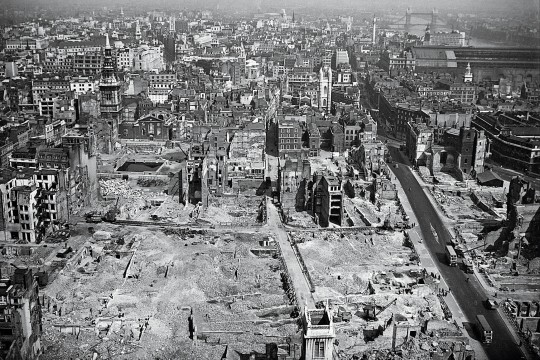
This is the city Owen would've grown up in. This is a war zone. A city where food is tightly rationed, where sirens were constantly going off and you had to draw down the blackout curtains and go sleep in the tube station with bombs dropping constantly overhead:
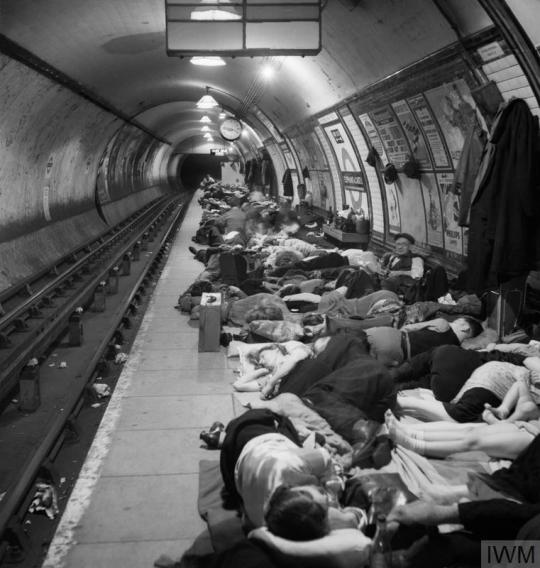
If Owen were upper middle class, he might have had a shelter at home, some people did. But I imagine him sleeping in dark, cramped, noisy stations. And he learns to keep his cool. He starts to enjoy the danger because he has to to survive it.
Maybe he has lost loved ones to the bombings. Maybe one morning he comes home from the tube station and half of his house is in rubble on the ground. Maybe he's used to hand me down clothes and simple homemade toys and not having enough to eat. He's used to having nothing, having nobody. That's a headcanon a lot of folks have, and I think it makes a lot of sense for his character.
Even if Owen were one of the kids evacuated to the countryside, maybe that happens when he's 15 or so, it wasn't a Lion, the Witch, and the Wardrobe situation. For a lot of those kids they were leaving their parents behind in a war zone, sleeping in barns or basements, and most importantly working almost non-stop on British farms because all the regular farmhands were fighting.
I think, if this happened, Owen would be itching to go off and fight in the war. My personal headcanon is that he's an intelligent guy, and he figures out how to forge some basic paperwork to claim he is older than he actually is, so he can go fight in WWII.
But by some fluke he couldn't account for, he gets discovered. And because of his skill and his ability to keep his cool under interrogation, he gets recruited to MI6. A lot of MI6 operatives are upper class men, recruited young from the top schools. He mimicks them.
I think many years later, when he and Curt are escaping a Russian weapons facility, Owen loves Curt and trusts in his capabilities (maybe a bit too much- especially when he's been drinking), but he also feels frustrated that Curt is impulsive and cocky and thinks he is untouchable.
Because Curt didn't grow up the way Owen did. He didn't grow up waiting for the bottom to fall out over and over again. He's certainly got his own shit from adolescence, but he doesn't have that survival impulse hardwired into him the way Owen does. So Owen is careful and cautious for the both of them, trying to keep them both safe and alive.
I think about Owen being trapped in the rubble a lot. He would almost certainly be critically injured. Maybe he has PTSD from the WWII bombings, and he's just trapped in an exploded building, trapped with his own memories of childhood until he's almost feral from it.
This also, btw, is why the AU of Owen as Eurydice from Hadestown is so so poignant to me. Someone who grew up cold and hungry and turned their collar to the world, and then suddenly they fall in love and everything is sunlight all around them. All I've Ever Known is such an important owen!Eurydice song to me
I could keep going from here, but I'll stop for now. This isn't as neat and concise as I wanted to present these thoughts, but I can't stop thinking them
#spies are forever#tin can bros#agent curt mega#owen carvour#curtwen#spytown#spytown renaissance#saf headcanon#saf#SAFtistic
55 notes
·
View notes
Text

Today in the 13th door a little beauty that is often forgotten. Once built in India, she is now the oldest English frigate still afloat. We are talking about HMS Trincomalee
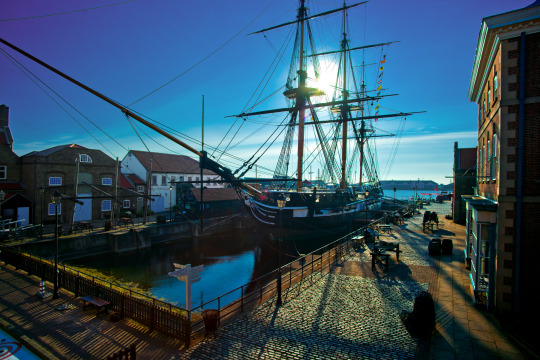
HMS Trincomalee
More infos about her here:
Laid down in Honourable East India Company's shipyard in Bombay in 1816, together with her sister ship HMS AMPHIRITE and launched on 12 October 1817, TRINCOMALEE was one of 47, 38-gun Leda class frigates built between 1800 and 1830. Nearly all of them were of oak, but the two Bombay ships were made of Malabar teak.
Her building had been delayed by the plans being lost on HMS JAVA which was sunk by USS CONSTITUTION, a second set of plans not arriving in India until two years later.
When TRINCOMLAEE reached Britain in 1819, she went straight into 'ordinary' for 26 years in Portsmouth harbour. In 1845 she was commissioned for service in areas which lacked adequate coaling stations for the new steam vessels. Her stern was modified to an elliptical style, and she was reclassified as a 26-gun Corvette.
In 1847 she served in the West Indies and then in the Eastern Campaign of the Crimean War. After patrols in the Pacific she was again paid off into ordinary in 1857. Three years later she became a Drill Ship for Royal Naval Volunteers. Between 1860 and 1897 she was moored, mast-less and with deckhouses in Sunderland then West Hartlepool and finally in Southampton. She was sold to shipbreakers in 1897.
The philanthropist G Wheatly Cobb bought HMS TRINCOMLAEE to replace the training ship FOUDROYANT which had foundered two years earlier on its way to take up a similar role, and renamed the ship FOUDROYANT. She was moored in Falmouth and later at Milford Haven and finally at Portsmouth. On Cobb's death on 1932 she was managed by the IMPLACABLE Committee of the Society for Nautical Research.
During the war the vessel was taken over for the training of Sea Cadets. In 1947 she was given back to her owners and became an adventure training base for Sea Cadets, Sea rangers, Sea Scouts and other youth groups. From 1957 to 1987 she was moored at the entrance to Haslar Creek, Portsmouth. The Foudroyant Trust later moved her further north to avoid her being rammed by submarines. Training was discontinued due to the poor state of the ship and insufficient trainees. In 1987 the Foudroyant Trust transferred the ship to Hartlepool where a private yard had just paid off after restoring HMS WARRIOR 1860. In 1990 the Trincomalee was restored under the Trincomalee Trust. In 2016 the National Museum of the Royal Navy took responsibility for oversight of Trincomalee.
100 notes
·
View notes
Text
when will met ally
a part of: call it what you want au



to say will is in a hurry would be an understatement. realizing at 6:30 pm that he had an essay due at midnight wasn’t his smartest move and he keeps thanking the universe for the afternoon practice today because if it had been scheduled for the evening he’d be screwed.
to make matters worse, the whole student body seems to have to finish schoolwork today because there’s not a single free spot in sight in the library.
he wants to cry when he finally sees a single open chair at a secluded table that’s almost fully surrounded by shelves. it’s a small table, barely big enough for two workspaces and one is occupied. it’s not his favourite but it’ll have to do.
the girl at the table only looks up from her laptop short enough for him to silently point to the chair next to her to ask if it was free and to nod her head in it’s direction to confirm he can sit down.
as soon as he has his laptop and notes set up he’s fully engrossed into his essay until he’s done to the point where he only has to write his conclusion and submit it. when he looks up for the first time to straighten his back and take a breath he notices that the library is pretty much empty, only a handful of students are still scattered around the tables.
it’s only then he really notices the girl he has been practically sitting shoulder to shoulder with at the small table. she hasn’t moved either, her warmth a steady presence against his left arm. before he can even take a good look at her, his eyes catch onto her laptop to see if she’s also been writing up a last minute essay or why else she’d still be in the library at 11 pm on a tuesday.
instead of notes or a word document he’s met with a picture of a dead body though. his eyes widen and even though he feels like he shouldn’t ever see things like that, he can’t quite take his eyes off of it.
“that’s the black dahlia” he hears to his left. finally taking a look at the girl, he sees a cute brunette with freckles all over her face. her green eyes are set on him with a slightly amused look, a sly smirk on her lips and her headphones now pushed down around her neck. he only manages to choke out a “what?”, his voice sounding rough because he hadn’t spoken in a while.
“black dahlia” she says, “her name was elizabeth short. she was murdered in january 1947 but nobody’s been able to solve the case so it’s gone cold.” he nods, clearing his throat to say “okay. are you, like, writing about her? or should i be concerned you’ve been looking at pictures of a dead body all night?”
she laughs quietly. “no, i’m all caught up on my classes. just can’t seem to stop thinking about what happened to her. what are you writing?” and then will remembers, he’s supposed to submit his essay in less than an hour and still has his conclusion to write.
“uh, can i postpone this conversation until i’ve actually finished it? i may have forgotten this was due at midnight” he admits with a lopsided grin. “sure, i’ll probably stay here anyways”.
after he sends her a grateful smile and she pulls her headphones back on to continue working, he turns back to his essay.
he tries to get back into his flow, he really does, but now that he’s taken a proper look at the girl next to him, he can’t help but hyperfocus on the way their shoulders brush when she uses the mousepad. his eyes can’t seem to stay on the words on his document either. he feels like they subconsciously draw to the pictures and articles on her screen or the way her blue nails click quietly on her keyboard.
after finishing his conclusion a torturing few minutes later, reading the whole thing one more time to make sure he’s not written total bullshit in his trance and submitting it with about 10 minutes to midnight, he turns back to her. the headphones now hanging around her neck permanently for some time - he’s obviously only noticed because he felt her arm moving, not at all because he’s been stealing glances at her.
“alright, i’m done. had to write about leadership in modern competitive environments” when she raises an eyebrow he adds “basically if you had to lead a team in any sport, would you focus on tradition or be okay with breaking some to make sure your team does better and like, the whole significance of tradition in modern sports since they’ve become so commercial.” she nods in understanding.
“how would you lead a team?” she asks, and he’s surprised to see genuine interest shining in her eyes. he subconsciously launches in a rant, it’s what happens whenever he talks about hockey. when he’s finished with his point he takes a breath and focuses his eyes back on her. she turned fully towards him somewhere during his talk, pulled a leg up on the chair to rest her chin on her knee. “i’m so sorry, i didn’t want to unpack that whole essay to you just now” he apologizes with a slight blush to his cheeks. “no, you’re okay. i like to hear people’s thoughts on things they’re passionate about.” save to say his blush did not disappear after that.
looking back into her eyes, he finds a mischievous glint, and when she quips “so hockey, huh?” is when it clicks in his brain. “wait, you’re our equipment girl, right?” “and you’re really good with people, apparently.”
“oh my god, i’m so sorry” he groans. “that’s okay, just don’t recognize the girl that tapes your stick whenever you’re late, no biggie” and he instantly feels bad because she had taped his hockey sticks multiple times and he didn’t even remember her name.
“i’m actually really sorry, you’ve been taping my sticks just how i like them but i can’t fucking remember your name.” she grins at that. “i’ve never actually told you, though” and relief washes over him. “so, could i maybe get your name now?” he asks, slightly nervous because he doesn’t feel like he’s made the best impression ever.
sitting silently next to her for hours before striking up a conversation about a dead body, all before shooting it down again because he forgot about his work. then as soon as he’s finished he rants to her and then tells her he doesn’t even remember her.
to his surprise though, she doesn’t miss a beat, answering “you’ll even get my number if you take me to get food right now”. he blinks once before he starts hurrying to pack his things, only stopping when she giggles behind him, when he turns around though she’s getting ready to leave just as quickly as him.
when he gets back to his dorm around 2 am it’s no surprise ryan’s fast asleep so when he quietly goes to brush his teeth and get ready for bed, he takes his time in front of the mirror to recap his evening.
they went to mcdonald’s, and he insisted on paying for her food because he still felt really, really bad about not remembering her. although she chirped at him because “you drove us here already” and “the driver never pays” and “i’m an independent woman, you know. let me pay for my share at least”.
they sat in his car in the mcdonald’s parking lot for a while, at first quietly eating their food. “my name’s alaska by the way.” she couldn’t help but laugh at him as he looked up at her mid-bite. he took his time chewing, looking out through the window and into the night. when his eyes settled back on hers, he answered “suits you” and the honest look in his eyes tugged on her heartstrings.
they talked about school some more, he found out she’s majoring in criminology - he still doesn’t know if that makes her more or less creepy than just looking at pictures of a dead body for fun. he’s decided though that he doesn’t give a fuck, she might be a little creepy but she listened to him rant and she has those pretty green eyes and she tapes his stick just right and that’s enough for will.
he took her back to her dorm, noticed it’s not far from his own and filed that information away in his brain for later. before she left the car he recited his number to her as she typed it in her phone before she grinned at him tiredly, leaned over the center console to hug him quickly before she hopped out of the car and headed to the front door.
he watched as she fumbled her keys out of her pocket, opened the door and waved at him before closing it.
as he just finds that comfortable position in his bed, his phone vibrates next to him.
from: unknown
spotify.com/podcasts/truecrimemysteries/theblackdahlia
unknown was changed to alaska
to: alaska
thank you, i’ll make sure to give it a listen
sleep well, see you soon?
from: alaska
i’m at that table nearly every day. also, you have practice tomorrow :)
good night, will
willsmith2 requested to follow you!
even though the vibrations were nearly silent, ryan grumbles in his bed across the room. “what’re you doin’ dude? ‘s too late” “finished that goddamn leadership essay and got food”
“you do know the essay is due tomorrow, right?”
alaska_argent accepted your follow request!
alaska_argent started following you!
#will smith hockey#will smith hockey x oc#will smith hockey imagine#will smith hockey x reader#alaska argent#goldie's call it what you want au
59 notes
·
View notes
Text
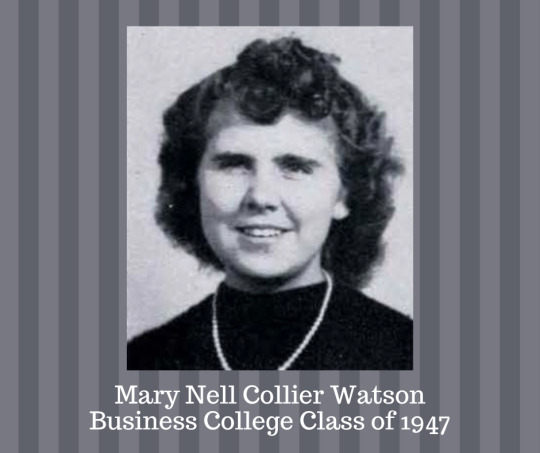
Mary Nell Collier Watson of Dothan passed away on Thursday, February 9, 2023, at her home surrounded by family. She was 95. Ward Wilson Funeral Home will be handling the arrangements.
Services will be held on Monday, February 13, 2023 at 2 P.M. at Ward Wilson Funeral Home with Reverend Tommy Green officiating. Burial will follow in Gardens of Memory Cemetery with Ward Wilson Funeral Home directing.
Visitation will take place an hour before the service.
Mary was born on October 25, 1927, to Isaac David and Verla Lee Lambert Collier in Dothan, Alabama. She was a 1946 graduate of Dothan High School and attended Bob Jones University in Cleveland, Tennessee. In 1948, she married Jerry Frank Watson, also a Dothan native. They spent 46 years together until his death in 1994. Mary Nell accomplished so much during her life, more than she realized. As an Air Force wife, she followed her husband throughout his career and enjoyed participating in all the functions that went with it. After retiring and settling back in Dothan in 1970, she, along with her best friend, Mavis Jenkins, established the Dothan Chapter of the Retired Officers Wives Club and held the first meeting in her home. She and Jerry were very active in the Retired Officers Association. She remained an active member, and after much coaxing, continued participating in their functions after Jerry's death. Her love was Dothan First Baptist Church, where she grew up and sang with her two sisters. She was currently a member of Mt. Gilead Baptist Church. But she would tell you her greatest accomplishment was her family; the husband and four children who adored her. She loved people and especially loved babies, working as a Red Cross volunteer in pediatrics for several years at Robins AFB, GA and Ft. Rucker, AL. Her kind and gentle nature made her so easy to love in return. She will be missed greatly by those who knew her.
Preceding her in death were her parents, husband, daughter and son-in-law, Nancy Watson Adams and Danny Adams, Opelika, AL, a brother, Ike Collier, and three sisters, Martha Collier Ware, Louise Collier Hagen, and Ann Collier Glasgow.
Survivors include two daughters, Kathy Watson Boswell (Danny) and Jerrie Watson Bass (Tommy) of Dothan; son, Thomas Watson (David Pillow), Savannah, GA; four grandchildren, Amy Latta Hartzog (David), Opelika, AL, Jennifer Boswell Peaden (JD), Dothan, Courtney Boswell McQuaker (Jamie), Auburn, AL, Matthew Bass, Dothan; 10 great-grandchildren; Ann Katherine Hartzog Lovin (Jacob), Hartford, CT, Gunnar Hartzog, Montgomery, AL, Gray Hartzog, Opelika, AL, Audrey C. Hartzog, Opelika, AL, Bailey T. Peaden (Madison), Jacksonville, AL, Collier D. Peaden and Kelsey J. Peaden, Dothan, Asa J. and Luke D. McQuaker, Auburn, AL:, Jonathon Bass, Dothan, several nieces and nephews, and a daughter and granddaughter of the heart, Julie Cantu' Kircher, Daegu, S. Korea, and Tiesha Corbitt, Dothan.
Serving as pallbearers will be her grandson and great-grandsons.
In lieu of flowers, the family suggests donations be made to St. Jude Children's Research Hospital, 262 Danny Thomas Place, Memphis, TN 38105 or online at stjude.org/donate.
#Bob Jones University#BJU Hall of Fame#Obituary#BJU Alumni Association#2023#Mary Nell Collier Watson#Class of 1947
0 notes
Text

Crewmen haul down the National Ensign as USS SOUTH DAKOTA (BB-57) is decommissioned, at the Philadelphia Naval Base, Pennsylvania.
Date: January 31, 1947
U.S. Naval History and Heritage Command: NH 73929
#USS SOUTH DAKOTA (BB-57)#USS SOUTH DAKOTA#South Dakota Class#Battleship#Warship#Ship#United States Navy#U.S. Navy#US Navy#USN#Navy#Philadelphia Navy Yard#Philadelphia#Pennsylvania#East Coast#Delaware River#January#1947#post war#postwar#decommissioning#decommission#my post
19 notes
·
View notes
Text
Free!
"Leave our country alone!"
they say
"This isn't your land -
go back to where you came from!"
And as my brother's being shoot,
And my sister's being paraded naked -
For their great sin of: living
[Re'im, Israel, 2023]
As my great-grandfather was pushed down in the streets
And his beard was brutally shaved
As they raped and enslaved and murdered-
[Birkenau, Poland, 1943]
[just like in 1941 Farhud, Iraq ; Jedwabne pogrom; 1945 Tripoli pogrom, the 1946 Kielce pogrom, and the 1947 Aleppo pogrom]
In 1934 there were pogroms against Jews in Turkey and Algeria.
Other parts of my family were lucky enough to survive the 1929 Hebron massacre during the 1929 Palestine riots.
[Mandatory Palestine under British administration]
In 1919, soldiers marched into the center of town accompanied by a military band and engaged in atrocities under the slogan: "Kill the Jews, and save the Ukraine." They were ordered to save the ammunition in the process and use only lances and bayonets during the Proskurov pogrom.
[Proskurov, Ukraine, 1919]
[100 years, and nothing changed, huh?]
You know, my grandma's arab. I still remember sitting in class in high school, hearing about the 1840 Damascus affair, and thinking:
hu.
I'll skip several years and countries, but:
Their grandparents were there to witness as the outbreak of violence against Jews (Hep-Hep riots) occurred at the beginning of the 19th century.
The 1821 Odessa pogroms marked the beginning of the 19th century pogroms in Tsarist Russia
That's Khmelnytsky Uprising of 1648–1657 in present-day Ukraine.
So they said, during the attacks against Jews also took place in Barcelona and other Catalan cities during the massacre of 1391.
Their ancestors were cast away and murdered in Spain, 1492.
The same way we were banished and cast away from Bern (1427) and Zürich (1436) for almost 400 years?
Let us not speak of the alaughter on Holy Saturday of 1389, a pogrom began in Prague that led to the burning of the Jewish quarter, the killing of many Jews, and the suicide of many Jews trapped in the main synagogue; the number of dead was estimated at 400–500 men, women, and children.
Brussels massacre of 1370.
Or - do you want to hear about the 510 jewish communities that were destroyed? (1348-1350)
including in Toulon, Erfurt, Basel, Aragon, Flanders[16][17] and Strasbourg.[18]
Just like Rhineland massacres in 1096
Some of them made it to England, around 1060.
It took less than 30 years for the first Podrom in 1189-90 in England,
Oh, and let us not forget 1066 Granada massacre [again, in Spain].
Or the Alexandria in the year 38 CE, followed by the more known riot of 66 CE.
The Jewish population of the land on the eve of the first major Jewish rebellion [66 CE] may have been as high as 2.2 million. The monumental architecture of this period indicates a high level of prosperity.
In 66 CE, the Jews of Judea rose in revolt against Rome, sparking the First Jewish–Roman War. The reverse seized control of Judea and named their new kingdom "Israel"
The revolt was crushed by the Roman emperors Vespasian and Titus. The Romans destroyed much of the Temple in Jerusalem and took as punitive tribute the Menorah and other Temple artifacts back to Rome. Josephus writes that 1,100,000 Jews perished during the revolt, while a further 97,000 were taken captive. The Fiscus Judaicus was instituted by the Empire as part of reparations.
[And here we come to a full cycle of blood, land, and pain].
And those are only those I found out about. Only those we have a record of. Only those we know to this day. They were so massive, or left enough impact so we still remember.
[I could go on, this is just a short list.]
It seems like no matter what we do, we'll always be accused for
Let me know, please - where can I be a jew, and just
Live?
#israel#jews#jewish history#history#palestine#Juda kingdom#pogrom#pogroms#terror#manslaughter#massacre
135 notes
·
View notes
Text

A devastating rail crash that left almost 300 people dead has refocused international attention on the importance of railways in the lives of Indians.
Indeed, to many Western observers, images of men and women crammed into overcrowded cars serve as a metaphor for modern India. Take, for example, a report by German newspaper Der Spiegel on India’s population surpassing China’s. Published just weeks before the accident in Odisha province on June 2, the now much-criticized cartoon depicted a shabby Indian train crammed with passengers rushing past a streamlined Chinese train with only two people in it.
Where does this enduring image in the West of Indian railways – and of India – come from? As a scholar of Indian history and author of 2015 book “Tracks of Change: Railways and Everyday Life in Colonial India,” I believe the answers lie in the gigantic infrastructure projects of the 19th century – forged at the intersection of colonial dictates and capitalist demands.
---
A carrier of freight, not people
Railways remain the backbone of passenger traffic in India, transporting some 23 million people daily. In the pre-pandemic 2018-19 financial year, 7.7 billion passenger journeys in India. [...] Yet, when first planned in the 1840s, India’s railways were intended to primarily transport freight and livestock, not people. Indians were thought unlikely to become railway passengers by directors of the English East India Co., a merchant monopoly that gradually annexed and administered large parts of India under U.K. crown control. [...] However, early colonial railway policy was driven by pervasive Orientalist imaginings of a people rendered immobile by poverty, living in isolated villages [...]. The trope interlocked with colonial thinking that railways would foster greater industrialization which in turn would further a capitalist economy. They also aligned with the practical needs of a colonial trading monopoly which needed raw materials for English industries, such as cotton, to be moved swiftly and efficiently from India’s interiors to port towns [...].
---
Despite the doubters, the new Indian railways attracted an increasing number of passengers. The half-million passengers recorded in 1854 when tracks became operational increased to 26 million in 1875. By 1900, annual passenger figures stood at 175 million and then almost trebled to 520 million by 1919-20. By the time of the partition of India in 1947 it had risen to more than 1 billion passenger journeys annually. Indeed, images of overcrowded trains came to epitomize the upheaval of partition, with the rail system used to carry swaths of uprooted peoples across the soon-to-be Pakistan-India border. Third-class passengers, overwhelmingly Indians, comprised almost 90% of this traffic. These escalating figures did not, however, generate a lowering of fares. Nor did they result in any substantial improvements in the conditions of [...] travel. [...]
---
The generally British railway managers seemed disinclined to remedy systematic overcrowding, which included transporting passengers in wagons meant for livestock. Rather, they insisted that such overcrowding was caused by the peculiar habits and inclinations of Indian passengers: their alleged [...] inclination to follow one another “like sheep” into crowded carriages. These attributes were soon rendered into a more public narrative, especially among Western mindsets. Journalist H. Sutherland Stark, writing for the industry publication Indian State Railways Magazine in 1929, stated that though “unversed” in railway administration and traffic control, he knew railway facilities were not the problem. Rather, Indian passengers lacked the mental preparedness, “self-possession” and “method” necessary to travel like “sane human beings.” Stark suggested passenger education as a solution to the perceived problem, making railway travel a tool for “self-composure and mass orderliness.” [...]
---
More than a century later, this depiction endures, though, ironically, it now serves as a foil to understanding contemporary India. In a piece published in The New York Times on March 12, 2005, the author lauded the then-new Delhi metro, emphasizing that it had “none of the chaotic squalor of hawkers and beggars that characterizes mainline railroads in India, nor do desperate travelers hang from the sides of the trains.” As the debate rages on whether safety has taken a back seat to “glossy modernization projects” in India – early analyses suggest signaling failure might have caused June 2, 2023, accident – railways continue to represent India’s history.
In the heyday of empire, they were deemed the technology through which Britain would drag India into capitalist modernity. In 1947, they became a leitmotif for the trauma of the partition that accompanied the independence of India and Pakistan. As the coverage of Odisha accident reminds us, it continues to be a metaphor in the West for evaluating contemporary India.
---
Headline, image, caption, and all text above by: Ritika Prasa. “Overcrowded trains serve as metaphor for India in Western eyes -- but they are a relic of colonialism and capitalism.” The Conversation. 9 June 2023. [Bold emphasis and some paragraph breaks/contractions added by me.]
151 notes
·
View notes
Text
Florenci Pla Meseguer "La Pastora", intersex antifascist hero
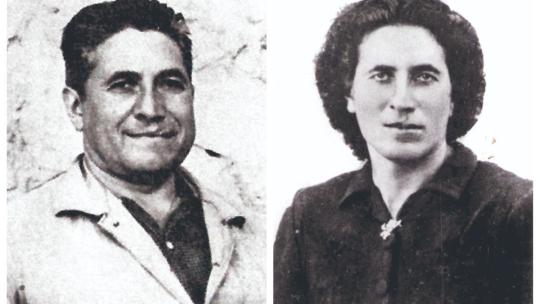
One of the most famous maquis (guerrilla fighters against Franco's dictatorship) is Florenci Pla Maseguer.
(thank you @neonbutchery for the suggestion)
He was born in a farmhouse in Vallibona, in the rural mountains in north of the Valencian Country, in 1917. His body did not fit the categories of either male nor female, so his family were left with the choice of what sex to register him as. His parents decided to register him as female so that he could avoid the mandatory military service.
He grew up in the farmhouse being a shepherd, and never went to school as was usual at the time for the rural working class. When he reached puberty, he developed male secondary sex characteristics.
When the fascists did a coup d'état in 1936, sparking the Spanish Civil War, he wanted offered himself as a volunteer to fight in the republican (=antifascist) army, and he thought that this way he would get officially registered as a man, but couldn't.
He kept dressing as a woman until he was 30 years old, but always felt a man. In his words (originally in Catalan in this interview in El Temps from 1988):
Interviewer: What did you think of your sexual condition? Did it cause you any worries?
Florenci: Problems...? Mainly because of the beard. They said I was half man and half woman, but I never felt a woman. I still remember the first time I dreamed I had an affair with a woman, when I was 13 (...)
I: Have you always felt a man?
F: Always, and I have always liked men's jobs and being registered as a man. In fact, when I walked the flock I carried a sarró [=a kind of bag], like men, and not a basket like women.
He kept wearing women's clothes until he was 30, when he joined the maquis. By then, it was 1947; the fascists had won the war in 1939 and, as a result, Spain and its occupied territories were ruled by Franco's fascist dictatorship, which persecuted the political dissidence, the national minorities (such as Catalans-Valencians) and their languages, and everyone who didn't fit the strict normative and nationalcatholic morale, prominently LGBTQI+ people and women who didn't limit themselves to the roles that the patriarchal society considered fit. The maquis were the armed resistance.
I: How did you change the flock for the maquis?
F: Since I lived in the mountains, I had sometimes talked to them. On a snowy night, three maquis took refuge in a house that was only inhabited in summer -El Cabanil- but one of them ran away -one who was from Morella- and everywhere he went, he spread the word, he snitched it. And the Civil Guard [=the regime's military police] followed their clue until they found them and burned the house down, because they were resisting. The next morning, they arrested El Cabanil's owner and I got nervous because I worked for him, and I decided to escape out of fear of being killed.
I: Was it because of the fear of reprisals or for the humiliations to which the Civil Guard put you through?
F: Yes, that determined it, too. That was on the morning of the same day they burned down El Cabanil, and it was "teniente Mangas" [="lieutenant" Mangas, which he says in Spanish], six guards and two militiamen, one from Torremiró and the other one from Herbesset.
I: And what did they do to you exactly?
F: They were curious to know how could a shepherd girl be half man and half woman. I had sold thrushes to the militiamen, and they told the Civil Guard about my anomaly. Teniente Mangas ignored all rules and made me take off my clothes, until their curiosity was fulfilled. And when they were done, they said "bueno, a hacer bondad" ["well, behave" in Spanish, as a way to say goodbye]. And I felt so much rage, so much helplessness.
(...)
I joined [the guerrilla] and I dressed as a man. There, I was a man like any other.
From then on, he lived as a man and named himself Florenci, though he was known with other nicknames like "Durruti" (after the famous anarchist leader) and, most famously "La Pastora" (the shepherd).
He ended up living in Andorra, but a journalist for the Spanish tabloid El Caso published about him, attributing to him the crimes committed by other maquis, even ones that he had never met. For this reason, La Pastora became famous in all of Spain and the police intensified the search. The Andorran police turned him in to the Spanish police in 1960, accusing him of robbery, banditry and terrorism. He was judged twice for the same crimes: a tribunal sentenced him to 40 years of prison and the other one sentenced him to death and later changed it to 30 years of prison.
He spent 17 years in prison. First, in a women's prison where the women (and him) had to wear very tight miniskirts. He was later moved to a men's jail, where the case was further investigated. The detective saw that there was no proof and that the story didn't match up, so it was impossible that Florenci had committed these crimes. He was freed with a pardon in 1977 and the detective officially registered him as a man.
Despite the slander published by the press, when he came back to his hometown Vallibona, everyone came down to the village from their farmhouses to greet him. He died in 2004, at 86 years old.
Nowadays, Florenci "La Pastora" is by far one of the most famous maquis, if not the single most famous one. He is talked about in songs, books and documentaries, and has become an icon of the antifascist resistance.
#història#país valencià#florenci pla meseguer#la pastora#uselesslgbtfacts#maquis#history#intersex#intersex history#queer history#queer#lgbt history#lgbtq#lgbtq history#antifascist#working class history#antifascism#guerrilla#20th century history
190 notes
·
View notes